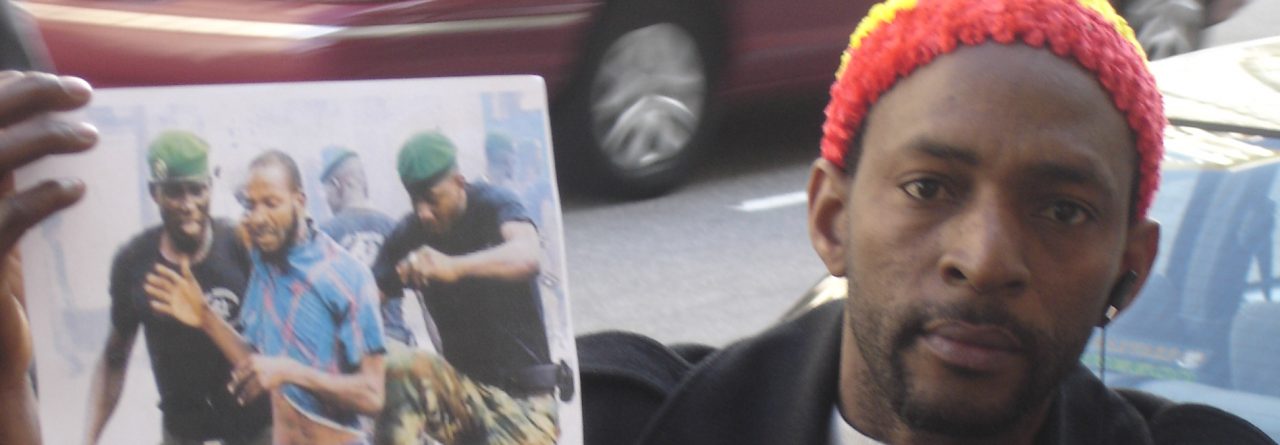West Africa still at crossroads despite recent progress, says UN envoy
Special Representative for West Africa Said Djinnit
13 July 2010 – Root causes of conflicts in West Africa, including ethnic tensions and governance challenges, could overturn gains made in consolidating peace, leaving the region at a crossroads, a senior United Nations official said today.
“This requires the continued support of the international community, including the United Nations, to maintain the momentum for peace and stability in the sub-region,” Said Djinnit, Secretary-General Ban Ki-moon’s Special Representative for West Africa, told the Security Council.
In the six months since his last briefing to the Council, Mr. Djinnit said that the situation in the region has improved. Earlier this year, a constitutional crisis was brewing in Niger, while the lives of large segments of Guinea’s population were affected by food insecurity, drug trafficking and other obstacles.
Since then, the staging of peaceful elections in Togo – with the subsequent formation of a new Government with the participation of part of the opposition – and the continued commitment of Niger’s authorities to a transition programme are “encouraging signs of progress,” he said.
In Guinea, steps are being taken to restore constitutional order, with the first round of presidential polls having been peacefully held on 27 June. Unrest erupted last year after the forces of Moussa Dadis Camara, who seized power in a coup in 2008 following the death of long-time president Lansana Conté, opened fire on unarmed protesters at a rally, killing at least 150 people.
“Needless to say… stable and peaceful democratic governance in Guinea will have far-reaching implications for regional stability,” especially in bolstering hard-won peace in Sierra Leone and Liberia, Mr. Djinnit pointed out.
Progress in Guinea could also help to address the ongoing crisis in neighbouring Guinea-Bissau, which has seen political and security tensions rise in recent months, he said.
A series of political assassinations last year had threatened security and stability in Guinea-Bissau, but order was restored with the election of Malam Bacai Sanhá in the June 2009 presidential election.
The past six months has seen economic growth in West Africa supported by the global economic recovery, but Mr. Djinnit noted that these improvements have not resulted in sustainable poverty reduction schemes.
At the same time, “prospects for achieving the Millennium Development Goals [MDGs] remain weak,” he said, referring to the eight anti-poverty targets world leaders have pledged to achieve by 2015. Also of concern, he said, is the food crisis touching the lives of millions of people in the Sahel, especially in Niger, home to more than 7 million hungry people.
Later in closed-door talks with Council members, Mr. Djinnit presented the Secretary-General’s latest report on the UN Office for West Africa (UNOWA), which notes that despite progress in shoring up peace and human rights, such strides are being undercut by the paucity of good governance.
“The resurgence of coups d’état in West Africa, which I have consistently denounced, and the major role played by the armed forces in these coups, are a reflection of the difficult civil-military relationships in situations of bad governance,” Mr. Ban wrote.
The Special Representative told the Council today that “recent experience in the subregion has shown that opportunities for crisis prevention and sustainable peace are now available more than ever,” underscoring the key role international assistance could play in promoting human rights, supporting electoral processes and helping in the fight against drug trafficking, among others.
The 15-member body took note “of the proactive role played by UNOWA in mobilizing the system of the UN in the subregion and in forging strong partnerships with regional and continental partners and also mobilizing international support,” he told reporters after the meeting.



 Secretary-General Ban Ki-moon meets with Abdou Diouf, Secretary-General of the International Organization of La Francophonie.
Secretary-General Ban Ki-moon meets with Abdou Diouf, Secretary-General of the International Organization of La Francophonie.